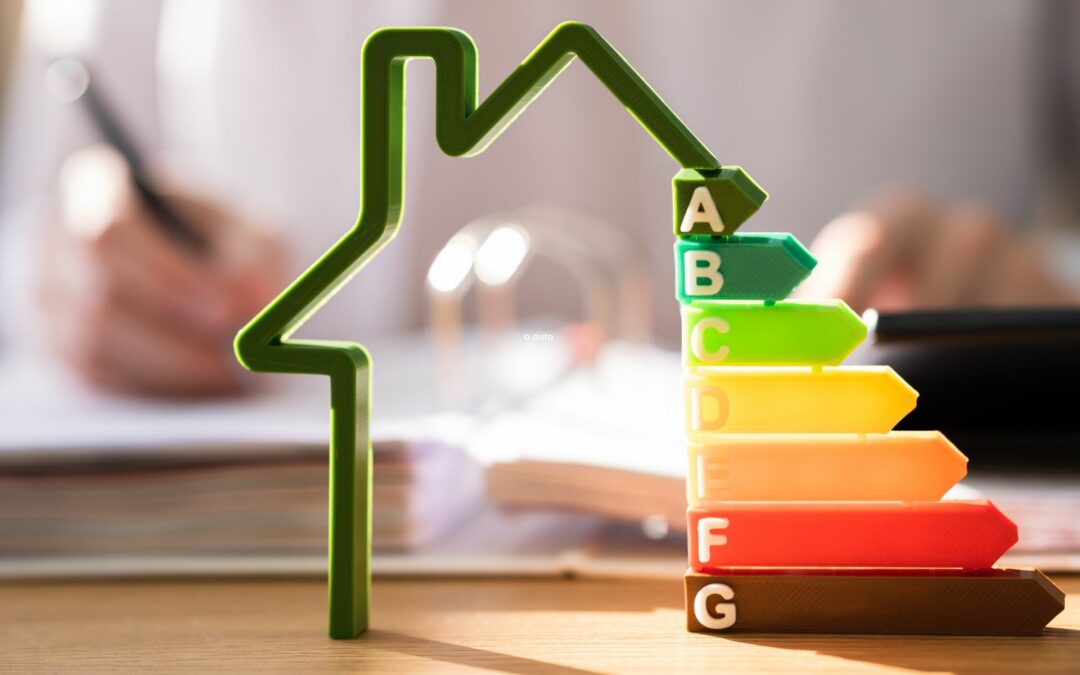Welcome to our guide on home appliance fixes to improve energy efficiency and lower your electricity bills. Appliances play a vital role in our daily lives, but they can also be significant contributors to energy consumption. By identifying common energy-hungry appliances and implementing simple fixes and maintenance routines, you can optimize their performance and reduce your environmental footprint. From unplugging unused devices to adjusting refrigerator settings and investing in energy-efficient appliances, we’ll explore practical solutions to help you save energy and money while making your home more sustainable.

Identify energy-hungry appliances: Learn which home appliances consume the most energy and could benefit from efficiency fixes.
Appliances are an essential part of our daily lives, but they can also be major energy consumers. By identifying which appliances consume the most energy, we can take steps to make them more efficient and reduce our electricity bills.
One of the biggest culprits when it comes to energy consumption is the refrigerator. This household staple runs 24/7, making it a significant contributor to your energy usage. By adjusting the temperature and settings of your refrigerator, you can optimize its energy efficiency and save on electricity costs.
Another energy-hungry appliance is the air conditioner. During hot summer months, it can be tempting to crank up the AC, but this can lead to sky-high energy bills. Regular maintenance, such as cleaning or replacing air filters, can help your air conditioner run more efficiently and reduce its energy consumption. Dishwashers and washing machines are also energy-consuming appliances that can benefit from regular maintenance and optimization. By paying attention to energy labels and choosing energy-efficient models, you can make a significant impact on reducing your overall energy consumption.
Unplug unused devices: Discover how simply unplugging unused appliances can save you money on your energy bills.
Unplugging unused devices is a simple yet effective way to save money on your energy bills. Many appliances continue to draw power even when they are not in use, known as phantom energy usage. By unplugging these devices when they are not needed, you can eliminate this wasteful energy consumption.
Common culprits of phantom energy usage include televisions, computers, gaming consoles, and phone chargers. These devices often remain plugged in even when they are turned off or not in use. By getting into the habit of unplugging them when they are not needed, you can significantly reduce your energy consumption and ultimately save money.
Making a conscious effort to unplug unused devices may require a little extra effort, but the energy savings can be substantial. By taking this simple step, you are not only reducing your environmental impact but also putting more money back in your pocket. So, the next time you finish using your laptop or turn off your television, don’t forget to unplug them and watch your energy bills decrease.
Optimize refrigerator settings: Find out how to adjust your refrigerator’s temperature and settings for optimal energy efficiency.
Adjusting the temperature and settings of your refrigerator is a simple yet effective way to optimize its energy efficiency. One of the first things you can do is ensure that your refrigerator is not set too cold. Most refrigerators operate best at a temperature of around 37 to 40 degrees Fahrenheit (or 3 to 4 degrees Celsius). Setting the temperature any lower than necessary can result in unnecessary energy consumption.
Another important setting to check is the defrost timer. This timer controls how often your refrigerator goes into the defrost cycle. If it is set to defrost too frequently, it can lead to higher energy usage. On the other hand, not defrosting often enough can affect the cooling efficiency of your refrigerator. Finding the right balance is key to maximizing energy efficiency.
Additionally, it is important to take into consideration the location of your refrigerator. Make sure it is placed away from direct sunlight and other heat sources, such as ovens or heaters. Exposure to excessive heat can cause your refrigerator to work harder to maintain the desired temperature, resulting in increased energy consumption. By paying attention to these settings and factors, you can ensure that your refrigerator operates at its optimal energy efficiency level, saving you both money and energy in the long run.
Use power strips: Explore the benefits of using power strips to easily turn off multiple devices and prevent phantom energy usage.
Power strips are a handy tool that can help you save energy and reduce your electricity bills. By using power strips, you can easily turn off multiple devices with a flip of a switch, preventing them from consuming phantom energy when not in use. Phantom energy, also known as standby power or vampire power, refers to the energy that appliances and electronics draw even when they are turned off but still plugged in. This energy waste can account for a significant portion of your overall consumption, so using power strips is an effective solution to minimize this unnecessary usage.
Not only do power strips help eliminate phantom energy, but they also provide convenience and organization. With all your devices plugged into a power strip, you can easily turn them all off at once, saving you time and effort. No more crawling behind furniture to unplug each device individually. Additionally, power strips help declutter your space by reducing the number of wires and cords scattered around your home. This not only looks neater but also reduces the risk of tripping hazards. So, with the combination of energy savings, convenience, and tidiness, using power strips is a win-win solution for both your wallet and your home.
Maintain your appliances: Discover the importance of regular maintenance for appliances like your air conditioner, washing machine, and dishwasher to ensure they operate efficiently.
Regular maintenance is essential for keeping your appliances, such as air conditioners, washing machines, and dishwashers, running efficiently. Neglecting regular upkeep can lead to decreased performance and increased energy consumption. To ensure that these appliances operate at their best, it is crucial to schedule regular maintenance checks and follow recommended maintenance routines.
For air conditioners, cleaning and replacing filters regularly can greatly improve their efficiency and prevent dust buildup that can strain the unit. Similarly, washing machines and dishwashers should undergo periodic cleaning to remove residue and prevent clogs. Also, inspect the rubber seals and hoses for any signs of wear or leaks, as these can affect the overall performance of these appliances.
Investing time and effort in maintaining your appliances not only ensures their longevity but also helps you save on energy costs. With a little attention and proactive care, you can keep these energy-hungry appliances running optimally and avoid any unexpected breakdowns or inefficiencies in the long run.
Adjust your water heater temperature: Learn how to set your water heater to an energy-efficient temperature that saves both energy and money.
When it comes to optimizing your home’s energy efficiency, adjusting your water heater temperature is an often overlooked but important step. By setting your water heater to an energy-efficient temperature, you can not only reduce your energy consumption but also save money on your utility bills.
The first thing to consider when adjusting your water heater temperature is the recommended range. Most experts suggest keeping your water heater set between 120 and 140 degrees Fahrenheit (48 to 60 degrees Celsius). This range provides hot water for daily use while still ensuring safety and minimizing the risk of scalding.
However, it’s important to note that the higher you set your water heater temperature, the more energy it will consume. On the other hand, setting it too low may result in water that is insufficiently hot for your needs. It’s a delicate balance between comfort and energy savings. By finding the optimal temperature within the recommended range, you can strike a balance and achieve both energy efficiency and practicality.
Use the right-sized pots and pans: Discover how using correctly-sized cookware on your stove can save energy by evenly distributing heat.
Using the right-sized pots and pans on your stove can have a significant impact on energy efficiency. By using correctly sized cookware, you can save energy by ensuring that heat is evenly distributed, resulting in more efficient cooking.
When you use pots and pans that are too large for your burners, a significant amount of heat is wasted. This is because the excess space between the cookware and the burner allows heat to escape rather than being transferred to the food. Not only does this mean that it takes longer to cook your meals, but it also means that more energy is being used to achieve the desired temperature.
On the other hand, using pots and pans that are too small can also result in energy waste. When cookware is too small, some of the heat produced by the burner is not effectively transferred to the food, resulting in inefficient cooking. This can lead to longer cooking times and unnecessary energy consumption.
By using correctly-sized pots and pans, you can maximize the heat transfer between the burner and the cookware, ensuring that energy is used efficiently. This not only saves you money on your energy bills but also reduces your overall carbon footprint. So, the next time you’re cooking a meal, pay attention to the size of your pots and pans and choose the right ones for your stove to save both energy and money.
Invest in energy-efficient appliances: Explore the benefits of upgrading
If you’re looking to make your home more energy-efficient, investing in energy-efficient appliances is a smart move. Not only will you be reducing your carbon footprint, but you’ll also enjoy a range of benefits. Energy-efficient appliances are designed to use less electricity or gas while still delivering the same level of performance. This means that you’ll not only be saving money on your energy bills but also be contributing to a more sustainable future.
One of the key benefits of upgrading to energy-efficient appliances is the long-term cost savings. While the upfront cost may be higher than traditional models, the savings in energy bills over time can more than makeup for it.
Energy-efficient appliances use advanced technologies, such as improved insulation and more efficient motors, to minimize energy waste. This translates into lower energy consumption and, ultimately, a lower utility bill. Additionally, energy-efficient appliances are often eligible for government incentives or rebates, further reducing the overall cost of upgrading.
Call Us For Quick Fixes Today
Ready to save energy and lower your electricity bills? You can trust our team at SameDay Appliance Repair to help you get started. From appliance repairs to upgrades, we can help you achieve your energy efficiency goals. Contact us today to get started.

